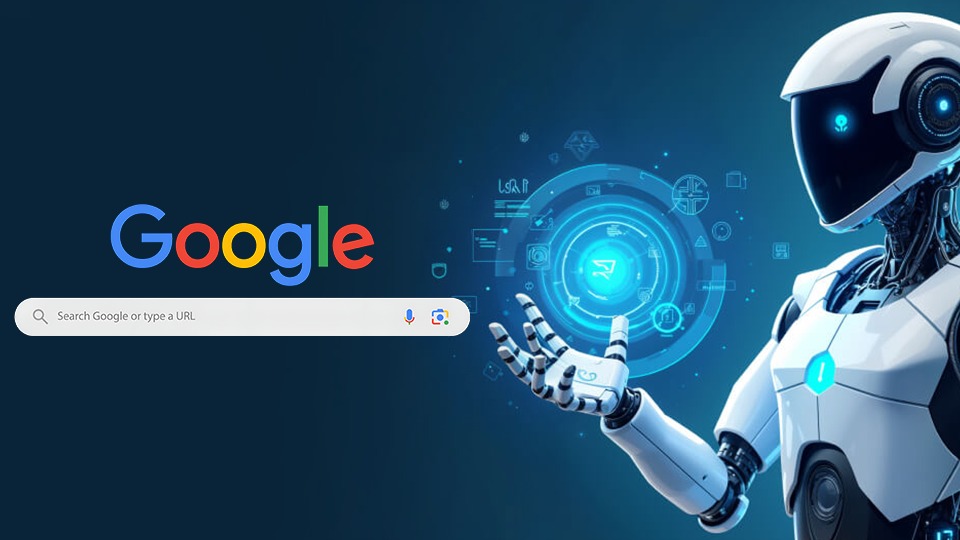Google search vs ai assistants 2025 has become one of the biggest discussions in digital marketing. For the first time in decades, Google is facing real competition from AI systems like ChatGPT, Gemini, Claude, and Perplexity that don’t just provide links, but decisions, explanations, and personalized recommendations. This shift is transforming the way users search, how ads work, and how brands reach customers.
Below are the seven powerful positive shifts defining this new advertising landscape.
Table of Contents
Toggle1. User Behavior Is Changing in Google Search vs AI Assistants 2025
People no longer type simple keywords. Instead of searching “best earbuds 2025,” users now speak to AI assistants like they’re talking to a knowledgeable friend:
“I need earbuds under ₹3000 with good bass for workouts. What should I buy?”
AI assistants respond with a personalized recommendation, not a long list of links. This change in search behavior gives AI platforms an advantage in comparison-based and advice-based searches. It also intensifies the chatgpt vs google competition, especially for users who want clarity rather than options.
2. AI Search Platforms Provide Personalized Answers, Not Generic Lists
Google shows links, ads, previews, and carousels. AI assistants give tailored answers. They simplify research by summarizing reviews, comparing features, and presenting only what matters.
Instead of browsing five articles to decide which laptop to buy, users now get a single, well-reasoned explanation. This is why ai search platforms are becoming a new entry point for early-stage decisions. AI doesn’t just find information it interprets it.
3. Paid Search in 2025 Is No Longer Google-Only
The future of paid search is expanding beyond Google. For years, Google was the only gateway for search advertising. In 2025, users begin their journey on ChatGPT, Perplexity, Gemini, and Claude. Conversations now initiate buying decisions.
AI assistant advertising blends seamlessly into the user’s experience. When a user asks for a product recommendation, AI can present the best option along with a booking or purchase link, integrated naturally. This is fundamentally different from traditional ads and marks a shift in how brands think about visibility.
4. Google Ads Challenges 2025 Are Opening the Door for AI Competitors
Google continues to dominate, but it’s also facing real challenges:
-
Higher ad costs
-
Lower organic visibility
-
Increasing search clutter
-
Ad blindness among users
-
Competition for top keywords
AI assistants counter this with cleaner, simpler, distraction-free experiences. Users receive a direct answer without scrolling through ads or comparing multiple links. This creates pressure on Google and allows AI platforms to grow into serious competitors.
5. AI Assistants Are Winning in Research and Comparison Intent
AI assistants excel at tasks where users need clarity:
-
Product comparisons
-
“Which one should I choose?” decisions
-
Software recommendations
-
Travel planning
-
Educational explanations
This is where the chatgpt vs google competition is strongest. AI eliminates noise. Google still requires evaluating several pages. For research intent, AI assistants are becoming the preferred choice.
6. Google Still Dominates Local, Real-Time, and Navigational Searches
Despite the rise of AI, Google remains essential for:
-
“ATM near me”
-
“Petrol pump nearby”
-
Real-time news
-
Store timings
-
Local results
-
Maps
-
Brand navigation
AI assistants cannot yet replicate Google’s depth in real-time indexing or location-based search. This balance is why the google search vs ai assistants 2025 landscape is not a war, but a split based on intent.
7. The Ad Battlefield in 2025 Is Hybrid, Not One-Sided
The future of search is not Google or AI it’s both. Users will choose platforms based on intent:
They’ll go to AI assistants for:
-
Research
-
Comparisons
-
Explanations
-
Decision support
They’ll go to Google for:
-
Local needs
-
Urgent tasks
-
Specific sites
-
Breaking information
-
Visual results
Marketers must now optimize for a hybrid world where conversational AI and traditional search coexist. The future of paid search will be shaped by both ecosystems, and brands that adjust early will have an advantage.
Conclusion
Google Search vs AI assistants 2025 is not about which platform wins. It’s about recognizing that users now search differently depending on their needs. Google remains the leader for real-time and local intent. AI assistants lead in decision-making and research intent.
The smartest brands will adapt to both improving visibility in Google while preparing for AI-driven recommendations. This hybrid approach will define the next era of digital marketing, advertising, and customer discovery.
If your business wants to stay ahead in this new ad battlefield, Curiousmind Consulting can help you build a strategy that fits the future of search.



